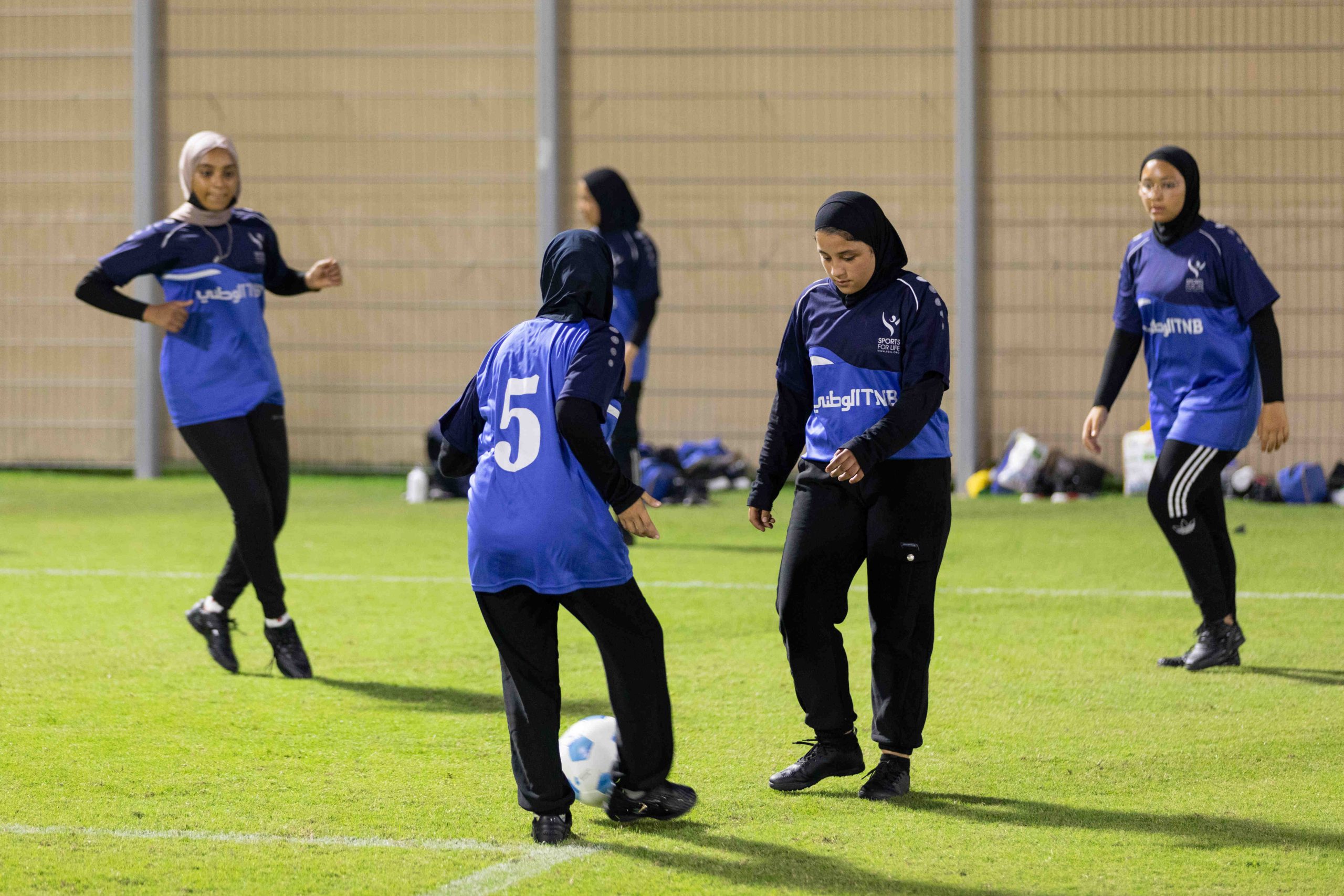Ten female footballers from Palestine will be supported by Qatar Foundation, the organisation confirmed.
A grant from Qatar Foundation will fund the education of ten Palestinian female footballers who competed in the 2022 Street Child World Cup in Qatar, the organisation confirmed.
Nine young female football players will receive funding to complete their education in their home countries as a result of the agreement, while one, Aya Habayeb, will attend school and receive coaching in Qatar.
The statement was made at a gathering by Qatar Foundation, which collaborated with Street Child United to organise the tournament last year.
“The FIFA World Cup Qatar 2022 has provided valuable opportunities to promote the values of respect, cultural diversity, tolerance, and social inclusion for all,” said Abeer Al Khalifa, President of QF’s Pre-University Education.
The FIFA World Cup Qatar 2022 programmes included the Street Child World Cup, which served to highlight QF’s ongoing efforts to advance education both inside and outside of Qatar, she noted.
This is due to the organisation’s unwavering belief that education is a right for every person, regardless of who they are or where they are located.
“Through this event, we had the opportunity to meet the participating Palestinian team, consisting of 10 girls. We have listened carefully to the challenges that female students in Palestine still face, and expressed our readiness to make additional efforts to overcome them,” Al Khalifa said.
Al Khalifa added that the programme assists in fostering an environment where people can reach their full potential and demonstrate their strengths. She also highlighted how students can succeed and demonstrate their capacity for brilliance when educated in a setting that is tailored to their requirements.
The event also honoured young leaders who took part in the Street Child World Cup as well as the legacy initiatives they developed.
Making note of her gratitude, Habayeb said: “I am very proud that I have received this support along with my fellow team members in Palestine, and that I will be able to represent Palestine here in Qatar – I will work hard to make the most out of this experience and to develop my skills and support my country and my people.”
“We are very excited to embark on this journey. We live under difficult circumstances in a refugee camp in Palestine, and we face challenges to get education.”
Habayeb added that she also hopes to play professionally so that she is able to support her family and younger sister, the latter of which is battling cancer.
Separately, John Wroe, co-founder and CEO of Street Child United, spoke on the significance of the 2022 Street Child World Cup.
“I am confident that, with your support, they [children supported by Street Child United] will change the world. It will make this world a fair and just world, where they can fully participate in society, because at Street Child United we believe that no child anywhere in the world should have to live anymore on the street, and that all children deserve a future free from fear, free from abuse, and free from neglect,” he said.
28 teams from 25 different nations were brought together by The Street Child World Cup 2022 to play for a World Cup-style football competition, giving young people who live in the street and experience a lot of hardship a place to voice their demands for a more equal and fair existence.
Qatar backs right to education for Palestinians
Doha’s forefront position in providing major contributions to help the indigenous people of Palestine has always been recognised in various sectors, including reconstruction, humanitarian aid and education.
The United Nations General Assembly declared 9 September as the International Day to Protect Education from Attack and adopted a resolution on the right to safe education for all.
The resolution was introduced by Qatar and co-sponsored by 62 states.
In September, Sheikha Moza bint Nasser delivered a powerful speech in France to mark the UN day, in which she slammed global double standards to in ensuring equal access to education in conflict-ridden zones and among children in disadvantaged communities.
“I have wondered if conflict in the global north would push those in power to understand the reality that is faced by real people in war zones. Would it make them empathise? Would it force them to act?” said Sheikha Moza.
In later 2020, Qatar Fund For Development signed a Memorandum of Understanding with Palestine’s Ministry of Education to provide Palestinian children in refugee camps with education.
The MoU aimed at contributing to Education Above All Foundation’s efforts to support Palestinian refugee students under UNRWA’s schools in the besieged Gaza Strip, the West Bank and Syria.
In late 2021, QFFD renewed a $3 million grant agreement with the Institute for Palestine Studies Project (IPS) to further inform the Arab and international community about the realities of the Palestinian cause.
Sheikha Moza bint Nasser and her foundation, EAA, have always vowed to support and proceed with educational projects in Palestine amid continued Israeli attacks.
The Qatar-based foundation, which has a team of networks on the ground in Palestine, has continuously engaged with school children despite the bombardments by the Zionist regime.
As of 31 December 2021, Qatar’s fund to UNRWA’s programme and non-programme budget stood at a total of $17,000,000 and held an overall donor ranking of 15 out of 122 countries.
Also in September, the UN Relief and Works Agency for Palestine Refugees in the Near East (UNRWA) thanked Qatar for its support and dedication of the right to education for Palestinians and others from conflict areas, on the occasion of ‘International Day to Protect Education from Attack’.
“Qatar has been instrumental in shining a light on the impact of hostilities on education,” it said in tweet.







